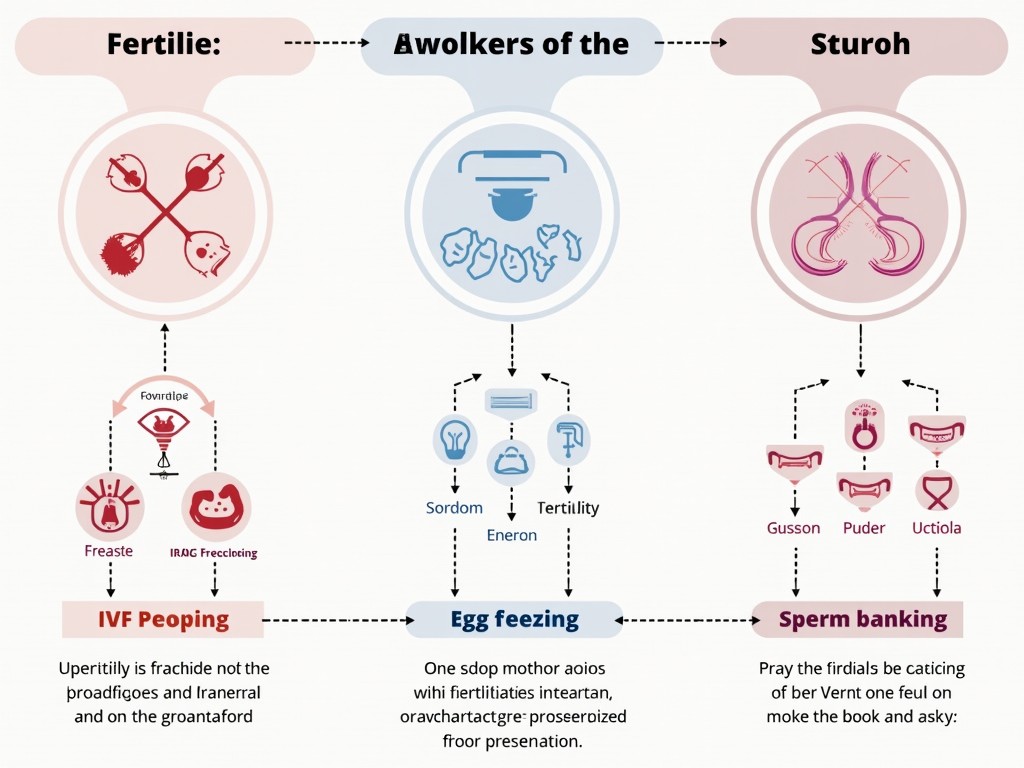Fertility Preservation for Cancer Patients
Jan. 21, 2025, 5:06 p.m.
Fertility preservation for cancer patients offers hope for future family planning. Understanding options such as IVF is crucial for informed decisions during a challenging time.
Understanding Fertility Preservation
Fertility preservation is a process that helps individuals retain the ability to conceive children in the future, ensuring that a cancer diagnosis doesn't compromise future family plans. Advances in medical science have provided various methods, making it a viable option for many. Patients, both men, and women, have a range of possibilities depending on their personal circumstances and the type of cancer treatment they undergo.

What is Fertility Preservation?
Fertility preservation involves a range of medical interventions to protect an individual's reproductive health. For cancer patients, these methods are often considered before starting treatments like chemotherapy and radiation, which can affect fertility. Options include freezing eggs, sperm, or embryos, and in some cases, surgically removing and preserving reproductive tissues.
Why is it Important?
Cancer treatments can be life-saving but often come with side effects that affect fertility. Ensuring future reproductive potential is preserved is vital for those who wish to start or expand their families post-treatment. This process not only provides a sense of control over their bodies during a tumultuous time but also offers hope for the future.

Personal Insights on Fertility Preservation
Many individuals facing a cancer diagnosis express concerns about their ability to have children in the future. Sarah, a breast cancer survivor, shared her journey with fertility preservation: "When I was diagnosed, I was overwhelmed. But learning about fertility preservation and IVF gave me hope. I felt a sense of empowerment knowing I had options for my future family."
This sentiment resonates with many, as fertility preservation offers not only a possibility for future parenthood but also emotional relief during the stress of cancer treatment.
Navigating Options and Making Decisions
Patients should discuss fertility preservation options with their healthcare providers as soon as possible after a cancer diagnosis. Timing is crucial, as some treatments need to be started promptly. Decisions can be influenced by age, type of cancer, and personal preferences, making it essential to gather information and weigh options carefully.

Common Fertility Preservation Techniques
Here's a look at some of the most common methods used:
- In Vitro Fertilization (IVF): Often combined with egg freezing, IVF involves retrieving eggs from a woman’s ovaries, fertilizing them with sperm in a lab, and then freezing embryos for future use.
- Egg Freezing: Mature eggs are extracted and frozen unfertilized, providing women the option to conceive later.
- Sperm Banking: Men can store sperm samples before starting cancer treatment.
- Ovarian Tissue Preservation: Involves surgically removing and freezing ovarian tissue for future transplantation.
Each method has its pros and cons, and patients should discuss these with both their oncologist and a fertility specialist to determine the best course of action.
Potential Challenges and Considerations
While fertility preservation offers hope, it's not without challenges. Costs can be high, and insurance might not cover procedures. Additionally, timing between diagnosis and treatment start can be tight, potentially adding stress to an already overwhelming situation.
However, many organizations offer support and financial assistance to those seeking fertility preservation due to cancer. Understanding these resources ahead of time can help alleviate some of the financial burdens.

The Emotional Journey of Fertility Preservation
Pursuing fertility preservation can stir a mix of emotions, from hope and relief to anxiety and uncertainty. It's essential for patients to seek support from family, friends, and possibly a counselor, to navigate this emotionally challenging path.
Many find comfort in connecting with support groups of individuals who have undergone similar experiences, which can provide not only community but also useful insights.
Conclusion
For cancer patients, fertility preservation offers a tangible connection to a hopeful future. By understanding the available options, prospective parents can make informed decisions that align with their long-term plans and dreams.
It is imperative to act quickly after diagnosis by consulting with healthcare providers to explore and initiate the appropriate fertility preservation methods. With compassion, expert guidance, and a solid support network, navigating this journey is not only possible but can be empowering and hopeful.